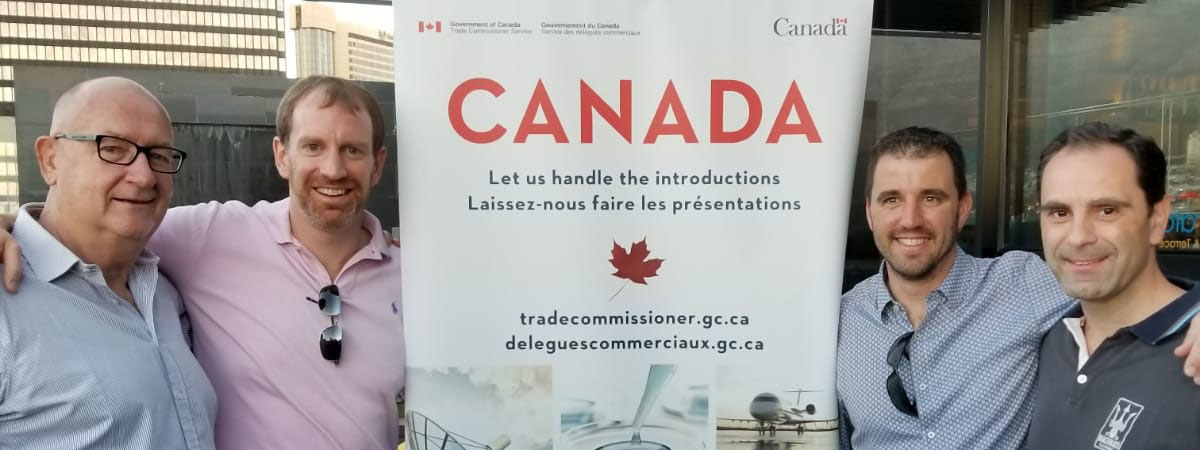Cypher Environmental looks to broaden its export reach to the world
Mike Morgan, CEO of the Southern Africa-Canada Chamber of Commerce, Todd Burns, Cypher President, Andrew Lindsay, Cypher Senior Vice President of Business Development, and Marcello DiFranco, Head of Office for the High Commission Johannesburg.
Joseph Kurgat has made a remarkable journey. After qualifying as an accountant in his native Kenya, he came to Canada to further his studies and then joined Cypher Environmental Ltd. (Cypher), a Winnipeg, Manitoba-based manufacturer of environmentally friendly road-making materials. Today, at just 26 years old, Kurgat manages Cypher’s production plant.
Kurgat’s success as an immigrant to Canada matches his employer’s impressive performance beyond our borders. From the plant in Winnipeg, Cypher ships hundreds of containers of its dust-control and soil-stabilizing products each year to mines, municipalities, military installations and other customers around the world. Cypher also produces enzymes that clean up sewage before it is discharged into rivers and that remove toxins from contaminated soil.
At the Shenhua open-pit coal mine in Inner Mongolia, China, Cypher materials have significantly reduced dust concentrations while improving visibility, enhancing safety and lowering the risk of occupational diseases. The mine estimates that EarthZyme®, Cypher’s soil-stability product, has cut fuel use by more than a million gallons a year.
Other markets include Argentina, Chile, Guinea, Namibia and Peru. Cypher has more than 35 distributors globally, adding one most recently in Australia.
The Trade Commissioner Service (TCS) has played a valuable role in Cypher’s overseas expansion. Andrew Lindsay, Cypher’s senior vice-president for business development, says: “The TCS certainly helps us understand what kinds of duties and taxes may be in place for each specific country we’re shipping to, and provides good background checks on companies that we’re looking to bring on as distributors.”
Cypher is optimistic that it will benefit from trade deals such as the Comprehensive and Progressive Agreement for Trans-Pacific Partnership (CPTPP). Even so, reaping those benefits may take time. “The CPTPP is fairly new, so we’ve got to do some more research into that,” Lindsay says.
The growing need for Cypher’s products was highlighted last May when six South African gold producers agreed to pay the equivalent of US$400 million to settle a class-action lawsuit brought by thousands of miners who contracted silicosis and tuberculosis, both fatal lung diseases, on the job.
Canadian companies like Cypher, bolstered by Kurgat’s skills, are playing a valuable role in alleviating such health and environmental challenges. What’s more, their business dovetails neatly with Canada’s progressive trade policy, which commits to a high level of environmental protection in international trade agreements.
- Date modified:
